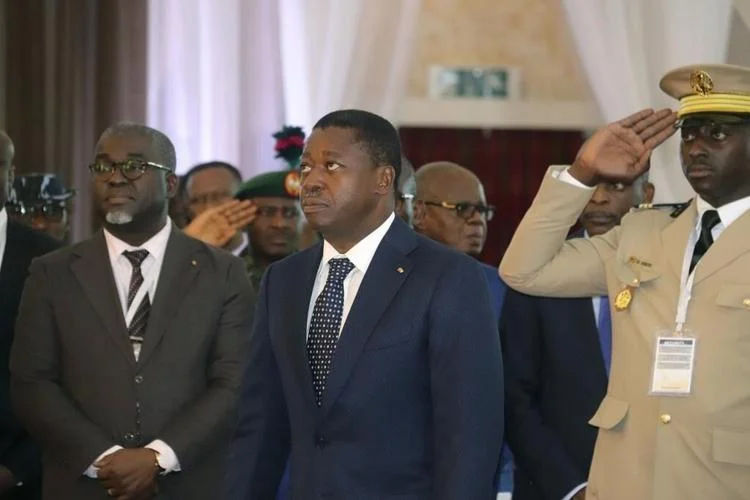
Gbmiga Olamikan
In Togo, parliamentary elections were held on Monday to assess backing for a proposed new constitution. This constitution would eliminate presidential elections, granting lawmakers the authority to select the president.
The opposition and religious leaders argue that the proposed legislation is an attempt by President Faure Gnassingbe, who has been in power since 2005, to extend his rule. The bill was passed by lawmakers in March after their term had expired, and it is on the verge of being enacted.
For 57 years, Togo has been governed by the same family, initially by Eyadema Gnassingbe and later by his son. Faure Gnassingbe assumed office following elections that the opposition deemed fraudulent. They argue that the proposed new constitution increases the likelihood of Gnassingbe remaining in power beyond his mandate expiring in 2025.
Ahead of Monday's vote, authorities cracked down on civic and media freedoms. Earlier this month, protests against the proposed new constitution were banned, and opposition figures were arrested. Additionally, the electoral commission prohibited the Catholic Church from deploying election observers.
In mid-April, a French journalist who arrived to cover the elections was arrested, assaulted, and deported. Subsequently, Togo's media regulator suspended the accreditation process for foreign journalists.
Jean-Pierre Fabre, a candidate from an opposition party, expressed concerns about the apparent low voter turnout and the fairness of the electoral process. He emphasized that participation in the elections was imperative as there were no other viable alternatives.
Approximately 4.2 million Togolese citizens were registered to vote in the country with a population of around 8 million. Voters were tasked with electing candidates for 113 parliamentary seats, 22 more than in the previous assembly, and for the first time, filling 179 senatorial positions. Preliminary results were anticipated within six days.
To ensure the security of the voting process, Togo's authorities sealed the borders on Monday and deployed approximately 12,000 gendarmes and police officers.
In the face of increased dissemination of misinformation during elections in West Africa, authorities cautioned against spreading false results or misleading information.
One voter, Kpedji Kossi Nicabou Sena, stated that he voted out of concern for the proposed constitutional change, emphasizing the significance of this year's vote for the country.
Yao Alexandre Adabrah, a Togolese citizen residing abroad who returned to vote, echoed similar concerns, emphasizing the uncertainty surrounding the consequences of the impending new constitution.















